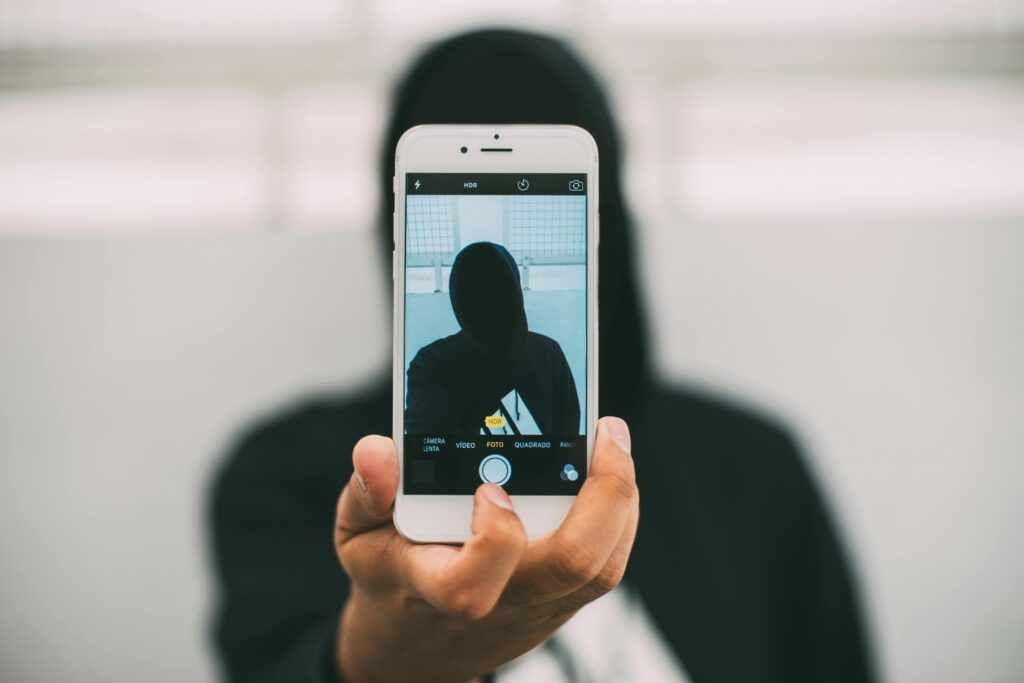The Vital Role of Safe Spaces
This student has chosen to remain anonymous.
October 7, 2025 | By NRCF Recipient

At three years old, she arrived in America from China with her family. Now a freshman at San Francisco State University, she’s navigating not only her first year of college, but the complex intersection of cultural expectations and personal identity.
“My family doesn’t know about my identity,” she explains, her voice carefully weighing each word. “I come from a very traditional Chinese family, so I never thought about coming out to them. Honestly, I’m not sure I ever will.”
The cultural pressure runs deep, rooted in expectation. “It’s all about continuing the lineage,” she says. “This stems from China’s one-child policy. I’m an only child.” The responsibility of carrying forward her family’s legacy creates a tension between her heritage and embracing her authentic self.
The Struggle for Self-Acceptance
Middle school brought its own challenges. “Growing up, I was very scared to tell people about my sexuality. I remember being terrified of how people would perceive me,” she recalls.
The fear wasn’t limited to straight peers—even confiding in LGBTQ+ friends felt daunting when she wasn’t sure exactly where she fit on the spectrum.
But high school marked a turning point. “Once I got there, it didn’t seem to matter as much anymore. I got involved in a club that explored all kinds of sexuality and backgrounds.
My school was pretty diverse,” she remembers. It was there she began to understand a fundamental truth: “Sexuality can’t be seen on the outside. That’s something I think about and remind myself of a lot.”
Building Community Through Activism
Her real breakthrough came through organizing work within the LGBTQ+ community. “We came together to host dinners, and as activists, we formed something called the Enoki Collective,” she explains.
These gatherings became more than just meals—they were spaces of belonging where she could practice introducing herself authentically.
“It helped with my public speaking,” she notes. “You could never really tell people’s sexuality or what they identified with merely by looking at them, and that made me feel better. I don’t ‘look bisexual.’ But there isn’t one look. People exist on a spectrum. You don’t need labels.”
A friend’s support opened new doors of understanding: “She taught me the difference between gender, sexuality, romantic attraction and physical attraction. The spectrum is different for everyone.”
Her mindset embraces excitement and possibility: “If I find someone I like, I will go from there to a new experience.”
The Path to Teaching
Her decision to attend San Francisco State University (SFSU) felt destined.
“I noticed that many of my high school teachers went there, and I knew I wanted to become a teacher too. SFSU felt like the natural path.” Practical considerations also played a role—as someone who values personal space, having grown up as an only child, she chose to commute from home rather than navigate dorm life.
The summer before college, working with young children confirmed her calling.
“I was really good at it. Kids loved me and confided in me. When they were crying, they came up to me instead of the other teachers. It was really sweet knowing they trusted me so much.”
Impact of Support
Learning about National Rainbow College Fund through her college counselor proved transformative.
“My advice for younger students would be to just apply! It’s always better to apply than not apply. Show up. Do it!” she urges with enthusiasm.
The scholarship’s impact extends far beyond its financial benefits. “It helps with books, school supplies, tuition—even food for school. Truly, it covers the basic necessities for a student. I didn’t want to ask my parents for help. I’m super thankful that scholarships like these exist. It’s this kind of external support that matters.”
Creating Safe Spaces
Now at SFSU, she’s found herself in an environment where authenticity is welcomed.
“I’m grateful to be at a place where we’re all accustomed to giving out our pronouns during introductions. My teachers here and in high school have rainbow flags displayed,” she observes. “That’s exactly why I want to be a teacher—I want to be a safe space for kids. It’s all about representation.”
The progress feels significant but fragile. “We have come a long way to create warm spaces. I don’t want to lose that.”
Looking Forward
As she settles into her role as a commuter student, she appreciates the diversity around her. “There are lots of different types of people across campus. I never feel different because of my sexuality.” Her teachers are accepting, and the campus culture feels inclusive.
Her ultimate goal remains clear: becoming an elementary school teacher who can provide the kind of safe, affirming space she wishes for every child.
“I know I could make a positive impact on the next generation. I hope to be that safe space for kids.”
The allies who supported her along the way showed her what’s possible. “They made me feel safe to tell them. They were always able to set up a space where I could just be me.” Now she’s preparing to pay that gift forward, one classroom at a time.
Want to Make a Difference?
Here’s how you can support LGBTQ+ students, allies and more through NRCF:
Every action counts — thank you for being part of this movement for educational equity and opportunity. No student should ever have to choose between their safety and their educational dreams.